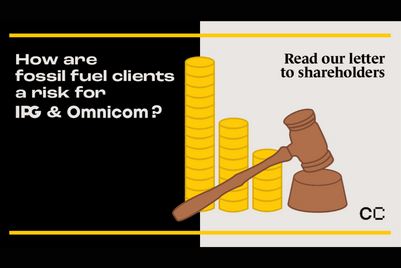Omnicom Group’s $13.5 billion acquisition of rival advertising giant Interpublic Group has been approved by The US Federal Trade Commission (FTC), contingent on a consent order that restricts the combined company from coordinating ad spending based on political or ideological content of publishers.
The approval clears a significant regulatory hurdle for the deal, which will create the world’s largest media buying agency by combining the third and fourth largest US agencies.
The FTC’s consent order prohibits Omnicom and Interpublic from colluding to steer advertising dollars away from media outlets due to their political viewpoints. Specifically, the companies cannot engage in agreements with others to boycott or direct clients’ ad spending based on the publishers’ political or ideological stances. The rule is meant to prevent unfair cooperation that could harm competition and limit open public discussion.
“Websites and other publications that rely on advertising are critical to the flow of our nation’s commerce and communication,” said Daniel Guarnera, director of the FTC’s Bureau of Competition, in a
statement. “Coordination among advertising agencies to suppress advertising spending on publications with disfavoured political or ideological viewpoints threatens to distort not only competition between ad agencies, but also public discussion and debate.”
The order preserves individual advertisers’ freedom to choose where to place ads while blocking unlawful coordination.
Omnicom CEO John Wren welcomed the FTC’s decision, calling it "a notable step forward in the process of combining our companies and their deep pools of talent, complementary capabilities, and geographic strengths". Interpublic CEO Philippe Krakowsky highlighted the combined company’s enhanced capabilities and geographic reach in a transforming media landscape.
The FTC’s approval is subject to a 30-day public comment period before final acceptance. The merger is expected to close in the second half of 2025, pending remaining regulatory approvals. The consent order also requires Omnicom to provide annual compliance reports for five years and assist the FTC in any related inquiries.
Although the order prohibits ad boycotts based on political or ideological viewpoints, many large advertisers still prefer to avoid placing their ads on or near politically sensitive content. This raises the question of whether the order will unintentionally encourage advertisers to distance themselves even more from such content.
"The restrictions are more a sideshow than centre stage," says Greg Paull, principal at R3. "Agencies work for clients who want to target all consumers regardless of politics. The real test is going to be if 1+1=3, the proof will be in the pudding."
Darren Woolley, founder and global CEO of Trinity P3, says that the FTC conditions are a moot point, considering
reports indicate the exclusion is if a client specifically asks for their media investment to exclude particular media platforms and environments.
"Considering that very few agencies would proactively recommend excluding any channel that effectively delivers an audience, it is unlikely to have a significant impact on the agencies," says Woolley. "Except perhaps to create further nervousness when dealing with a media platform owner who is clearly litigious. It seems that in this case, the FTC is more accommodating of the concerns of a media owner than it is in actually encouraging open and free trade."
The FTC’s regulatory order comes amid increased scrutiny of advertising industry practices and concerns about political bias, including investigations into alleged coordinated ad boycotts of Elon Musk’s social media platform X.
Musk has
filed lawsuits against major advertisers such as Nestlé, Lego, Shell, and others, accusing them of conspiring to withhold billions of dollars in advertising revenue following his acquisition of the platform in 2022. These advertisers deny the allegations, stating their decisions were independent and based on concerns about brand safety and content moderation.
.png&h=570&w=855&q=100&v=20250320&c=1)
.png&h=570&w=855&q=100&v=20250320&c=1)


.jpg&h=334&w=500&q=100&v=20250320&c=1)


.png&h=334&w=500&q=100&v=20250320&c=1)



.png&h=334&w=500&q=100&v=20250320&c=1)

.png&h=334&w=500&q=100&v=20250320&c=1)



.jpg&h=268&w=401&q=100&v=20250320&c=1)



